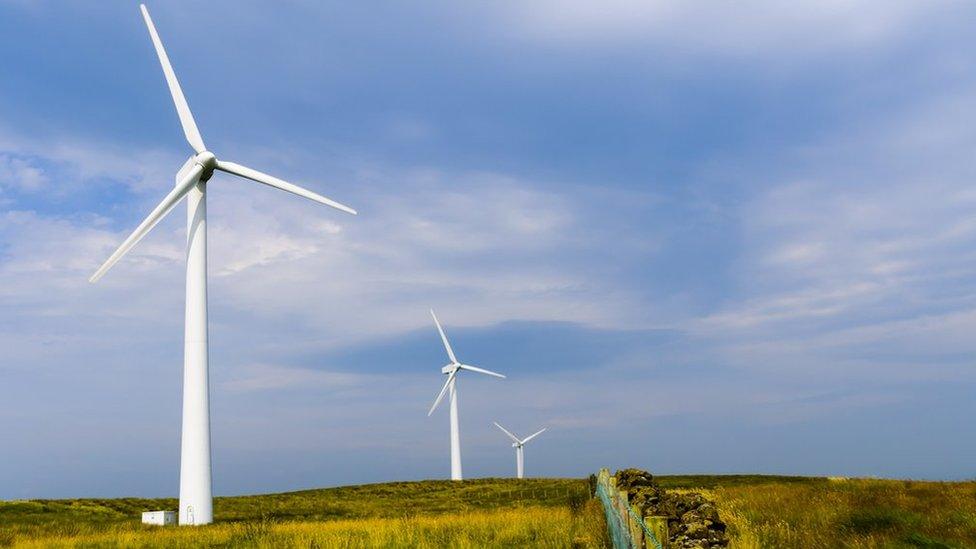Scotland's planning rules could change to hit climate targets
- Published

Planning applications would need to show how they could help meet "net zero" carbon emissions by 2045
Scotland's planning rules could change to prioritise applications that boost the country's chances of hitting climate change targets.
Consultations on the draft national planning framework have now begun.
It could see planners back proposals for town centre regeneration efforts and increased use of renewable energy.
And restrictions on out-of-town retail developments could be brought in as part of a drive to create "20 minute neighbourhoods" in towns and cities.
These would be areas where people could access services close to home either on foot or via active travel.
Planning minister Tom Arthur said the goal for Scotland in 2045 was that more people live in "well-designed, energy efficient homes, located within walking distance of local service and green space".
The government said the new framework meant that planning applications would need to show how they could help meet Scotland's target of reaching "net zero" carbon emissions by 2045 in order to gain approval.
It specifically highlights applications that help create more housing in town centres and reuse vacant and derelict land, while proposing "tighter restrictions" on out-of-town shopping centres.
Planners would also support upgrading existing wind farms or building newer, more powerful ones in areas outside of national parks - although it stresses that proposals would still need to take account of nearby residents and local communities.

The consultation paper, external says "significant changes" will need to be made in the densely-populated central belt in particular if Scotland is to meet its climate targets - having missed the last three milestones.
The document suggests making cities more "carbon conscious", including plans to "diversify" Glasgow city centre with more housing and to redevelop Edinburgh's waterfront neighbourhoods.
There is also discussion of setting up rapid transit networks in Aberdeen, Glasgow and Edinburgh to reduce congestion and reliance on cars, and improving the rail network so that more freight can be carried by train.
And there are proposals to push forward renewable energy generation and hydrogen production in the Western isles, Orkney and Shetland.
'Turning point'
Mr Arthur told MSPs that it was fitting that the new strategy was published at the same time as the COP26 conference in Glasgow.
He said: "This is a turning point for planning in Scotland. Our proposals will help us achieve our just transition to net zero emissions by helping to deliver more renewable energy, protecting our natural environment and creating better, healthier places to live."
The Scottish Conservatives questioned whether local planning authorities would be fully included in the proposals, with MSP Douglas Lumsden saying councils had been working hard on local development plans for years already.
Mr Arthur said local authorities were of "fundamental importance" to the planning system, saying there had been two rounds of consultation with councils with further talks ongoing.
Meanwhile, Labour's Sarah Boyack questioned whether resources would be available for key infrastructure projects, saying: "it's not enough yo have the targets, you need the effective planning and funding for implementing."
Mr Arthur said a "fully worked up delivery plan" would be published once the plans are finalised.